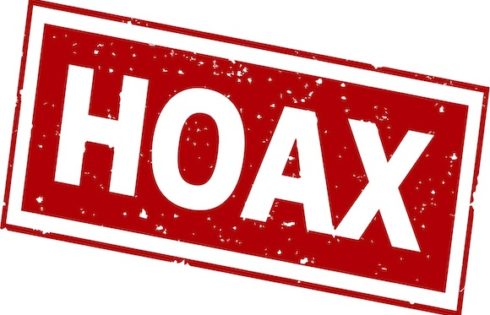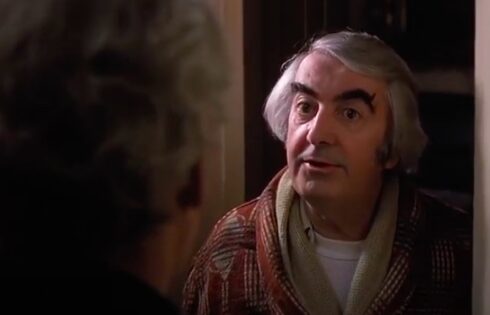
I know it’s a tired cliché, but just when you think you’ve seen it all, along comes something … well, “better.”
Mich Ciurria, an adjunct in the University of Missouri philosophy department, decided to apply that little ‘ol thing called “critical theory” to superheroes, specifically superhero movies.
In a paper titled “Intersectional Feminist Moral Responsibility & Superhero Movies,” Ciurria hyper-analyzes some of the genre’s best offerings with regards to how they affect the nexus of oppression, otherwise known as race, gender, sexual orientation, etc. etc.
Anyone familiar with Spider-Man’s background knows the phrase “With great power comes great responsibility.” But Ciurria says that, in reality, Peter Parker (Spidey’s real identity) “ain’t so responsible.”
Why? Although as “a cisgender white man, [Spidey] was less likely than the average police officer to racially profile suspects and use excessive force on Black, Hispanic, and trans people,” he nonetheless
[…] was handing over random suspects to the police force, an institution known to kill Black people at disproportionate rates, to use excessive force on Black people, and to harass and assault trans people. Was he waiting at the scene of the crime to make sure that his captives were being fairly treated by the police? Nope! He just spun them up in webs and left them hanging until the police showed up. Very responsible!
And that’s not all: Spidey looks the other way while his captives of color go through a racially discriminatory justice system! And, once in prison, these prisoners can be forced to do labor … without compensation!
Of course, in the early (Steve Ditko-drawn) “Spider-Man” comics there weren’t a lot of people of color in the title’s pages period. Which means that ‘ol Web Head wasn’t bagging many minority criminals. (That, or he did so “off-panel.”) That era’s paucity of minority characters was a sign of the times, but anyone who’s read about about Marvel’s creators, especially Stan Lee, knows they were ahead of the curve in terms of inclusivity.
MORE: Superheroes should stop saving the world due to carbon footprints
In 1966, just four years after Spider-Man’s debut, Lee and pal Jack Kirby introduced the Black Panther — the first black superhero — in the pages of “Fantastic Four.” Just as in the films, the Panther’s intelligence rivaled that of the FF’s Reed Richards (in fact, in the comics, Richards at times relied on the Panther’s tech when in a pinch), and he presided over a technologically advanced (and hidden) nation in Africa.
But not even the Panther is safe from Ciurria’s wrath. It’s better than “Spider-Man,” she says, because “Black Panther” is based on a “colonialist context”; nevertheless, Killmonger’s character (the Panther’s nemesis) suffers from racial stereotypes, and even worse: Disney produced the film. “[A] Disney movie can’t promote an anti-racist agenda because it’s a capitalist venture that promotes an industrialist-capitalist mindset,” Ciurria contends.
Ciurria also considers the Panther a “Mary Sue” because the powers-that-be want him to represent “racial justice.”
Other wildly popular heroes like Iron Man and Batman are trashed because Tony Stark and Bruce Wayne (the heroes’ respective identities) built their industrial empires “on neoliberal economic processes that disproportionally harm People of Color.”
To name just one of Bruce Wayne’s many holdings, Wayne Oil is part of the global oil trade, which is a leading cause of war, climate change and ecosystem disruption, and which increasingly displaces Indigenous communities. Stark Industries presumably supplies weapons either to the U.S. military, to be used in war crimes and the illegal militarization of the police, or to foreign dictators and warlords, the other main market for military arsenal.
It’s unclear if Ciurria has ever seen “Iron Man” which clearly depicts Stark’s change of heart after witnessing first hand what his manufacture of weapons had wrought. His company takes a major financial hit as a result of ceasing weapons production, but Stark holds fast while his partner, Obadiah Stane, works to subvert his efforts.
(In the late 60s and into the 1970s, “Iron Man” comics also depicted Stark’s transition from war-making to peaceful endeavors. “Iron Man” #78, a magnificent stand-alone issue from 1975, is an emotional tale which shows the protagonist coming to grips with his legacy … and how it needed to change.)
In her conclusion, Ciurria informs us that only an “intersectional analysis” (like hers, natch) can truly inform one as to “who deserves blame and who deserves praise” in superhero films. These stories ignore “the real sources of oppression: neoliberalism, patriarchy, and white supremacy.”
Some recent flicks have at least tried to tackle that second item — the “Ghostbusters” reboot and the still-in-theaters “Birds of Prey” to name two — but the box office sure wasn’t (and isn’t) happy about it.
That damn capitalism!!
MORE: Uh oh: A ‘studies’ professor looks at superheroes
IMAGE: Kristiana Gankevych / Shutterstock.com
Like The College Fix on Facebook / Follow us on Twitter






Please join the conversation about our stories on Facebook, Twitter, Instagram, Reddit, MeWe, Rumble, Gab, Minds and Gettr.